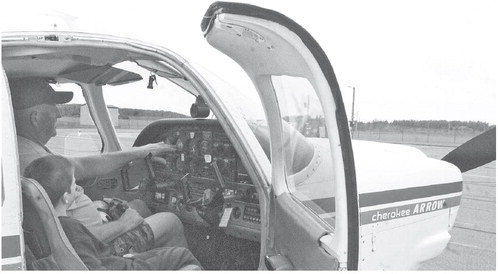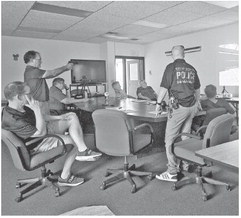Commission members say truck price increases are unsustainable


Members of the Medford Area Fire Commission are looking ahead to future fire truck replacement and not liking what they are seeing.
Fire chief Mike Filas reported on members speaking with the manufacturer of the truck purchased in 2019 for $560,000 to expect to pay $1 million for a similar truck when they next plan to make a purchase in about five years.
The Medford Area Fire Department plans to get about a 30-year life out of its firefighting vehicles. With the number of vehicles in the department’s fleet, this comes to replacing a vehicle about every five years. Each year, the fire commission sets aside money into a vehicle replacement fund with the goal of having enough on hand to purchase a vehicle when needed.
With the rapid and continuous increase in costs, commission members are faced with needing to more than double the amount being set aside if they wanted to have the needed funds on-hand in five years when the next purchase is scheduled.
“How are we going to be able to afford it?” asked Stanley Schmidt of the town of Medford calling the rate of increase unsustainable. Costs to operate the department, including vehicle purchases, are spread over the member municipalities based on their share of the overall assessed value of the fire district. The town and city of Medford have the biggest share of those costs with the town responsible for 23.7% of the fire department expenses and the city at 36.3% based on the 2024 valuations. What this means is that the town of Medford taxpayers will pay $21,369.48 into the truck replacement fund this year and the city of Medford will pay in $32,667.15. If the commission were to increase the truck fund payments to a total of $200,000 per year, those payments would be $47,487.74 per year for the town and $72,593.68 per year for the city.
“I don’t know how this is sustainable,” Schmidt said. He said with towns limited by state law on how much they can raise taxes, any additional amount would have to come out of the town’s road maintenance budgets. He noted that with rising costs there, the road maintenance budgets are stretched thin to meet needs.
Filas presented a draft budget that kept the operational budget for the department virtually the same as the current budget, but asked commission members to consider bumping the truck replacement fund contribution from a total of $90,000 per year to $100,000 per year. This would result in about a 5.5% increase for the total budget.
It was noted that with this increase, the commission would still be about $300,000 short when it comes time to purchase a truck. The option at that point would be for the municipalities to borrow the money needed.
Schmidt noted that this would allow the towns to increase taxes to pay off of the debt.
City representative Clem Johnson favored increasing the payments to avoid having to borrow funds. “It think it is easier to budget a little extra money now than try to come up with a big amount later,” he said.
Schmidt said he was not opposed to a small increase to reduce the amount needed to borrow, but noted that borrowing would give the towns more flexibility to pass the cost in the tax levy.
“If you are going to come up with a million in five years, you will have to come up with $200,000,” Johnson said, recognizing the increased burden it would put on all the member municipalities including the city.
“We are limited to 2% a year,” Schmidt said of the state limits on town government levy increases.
“I don’t see how it will be sustainable,” said Schmidt predicting that rural fire departments will have to go away because they can’t replace their equipment. “It is just physically impossible,” he said.
Schmidt said they all want as good equipment as they can provide for the firefighters who are using them, but he said the resources just aren’t there.
“I think we know that there is no magic bullet,” Schmidt said.
Schmidt said the only realistic way for the towns to be able to afford the cost is to finance it. He said he would support levying the finance costs as much as possible when the purchase is made and until then keeping the balance for roads. He noted that project to do two miles of Perkinstown Ave. is costing the town $700,000.
“We all know how strapped we are to just maintain what we have – if you take more money out of the budget you are going backward,” he said.
Schmidt noted they weren’t the only ones facing this issue and that it was a statewide concern. He said that unfortunately few people in the general public, outside of those who sit on local government boards, are aware of it.
On the other side, residents are seeing their taxes climb without seeing obvious benefit from the increases. “My taxes went up 45% last year and the road in front of my house still sucks,” Filas said.
Schmidt noted that in the town of Medford he has 57 miles of road to maintain with just $230,000 to do it. “It is not just the fire department,” he said of demands on local town boards.
In the end the consensus favored the 5.5% budget increase, however, no formal action was reached. The commission members will bring the information back to their municipal boards for input. The commission will meet again at the end of August at which time a budget will be adopted and sent to the towns and city for their shares to be included as part of the overall municipal budgets.




